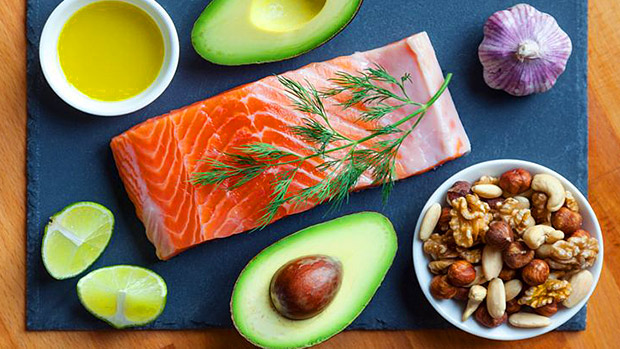Why Fat Is Your Friend
Fats are the best source of energy for the human metabolism. They also help provide the raw materials for all sex hormones, and they don't influence blood sugar. Here are 5 reasons why fat is our friend:
- Fat regulates our appetite. It helps us feel satisfied.
- Fat provides long lasting energy that carbohydrates are no match for.
- Fat has very low insulin (the hormone of aging) response, especially compared to sugar. One of the greatest side effects from the low fat craze – besides tripling childhood obesity in just one decade in the US – is its impact on mental decline.
- Fat is essential to the absorption of fat-soluble vitamins (A, D, E and K), which are vital for health.
- German nutrition expert, Konrad Biesalski, points out the counterintuitive reality that many of the nutrients implicated in protecting against cancer (vitamin A, folic acid, selenium, and zinc) are not only more abundant in meat but are also more bioavailable than they are when they're coming from plant sources. This means that these nutrients are better absorbed when consumed from meat rather than vegetables and fruits.
Which Are Best... And Best Avoided?
- There are three types of fats you should include in your diet: saturated, mono-unsaturated, and poly-unsaturated. Despite what we've heard in the past, saturated fat and cholesterol are needed for the synthesis of the steroid hormones in the body, including testosterone.
- Under all circumstances, avoid trans-fats.
- As a general rule, studies have shown that a fat intake making up less than 15% of overall calories in the diet can significantly decrease testosterone levels.
- If you're on a carb-restricted diet, make sure you include a decent amount of saturated and mono-unsaturated since they're good for energy metabolism. In addition, saturated fat and cholesterol help to maintain rigidity with cell structure.
- Poly-unsaturated fats should be included at lower quantities since they're sensitive to oxidation. Still, these have specialized roles to help optimize cell function, cognitive behavior, and inflammatory modulation.
- Eating high carb and high fat at the same meal isn't a good idea since insulin promotes fat storage in the wrong environment.
- Never cook with poly-unsaturated fats. Cook with coconut or palm oil. Other than brain boosting and fat-busting benefits, the reason to favor these tropical oils for cooking is because they're extremely saturated, meaning any chance of oxidation from heat is minimized.
Our ancestors thrived on a 4:1 ratio of omega-3 to omega-6 fatty acids. Nowadays the average diet leans toward 1:16 which is unhealthy. A reasonable aim would be a 1:1 ratio. This can be achieved by way of supplementation and good protein choices e.g. grass fed beef, yak, deer, elk over standard raised (often corn or soy-fed) pork, beef, and chicken.






